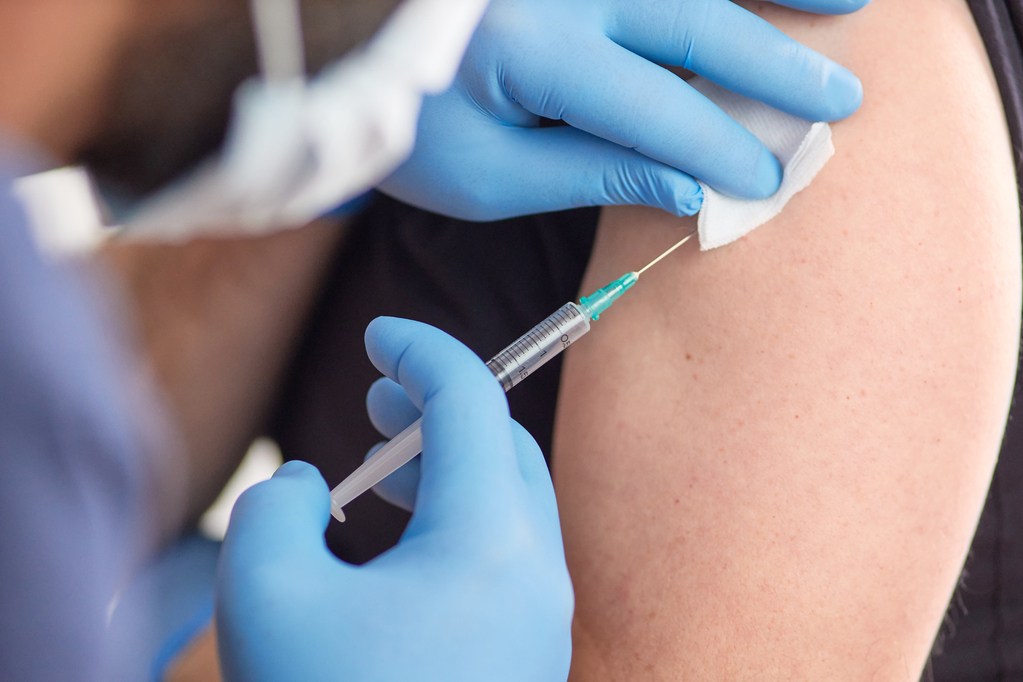Preliminary data on the risks of the new COVID variant of concern is high, the European Centre for Disease Prevention and Control (ECDC) said late Friday evening in a new Threat Assessment Brief.
The variant, labelled B.1.1.529 and named Omicron by WHO (the 15th letter in the Greek alphabet), was first detected in southern Africa.
Referring to currently available genetic information, ECDC writes that it is the most divergent variant that has been detected in significant numbers during the pandemic to date, raising serious concerns that it may significantly reduce the effectiveness of vaccines and increase the risk of reinfections.
“Today we are releasing a threat assessment on the emergence of a new Sars-COV-2 variant of concern,” ECDC Director Dr Andrea Ammon said (26 November). “There is still considerable uncertainty related to the transmissibility, vaccine effectiveness, risk for reinfections and other properties of this variant.”
“At this stage, based on our experience with previous variants we must be proactive and implement measures as a precaution to buy time until we gain more knowledge,” she warned. “Therefore, I would like to reiterate the three key recommendations from our rapid risk assessment from the 24th of November.”
“Firstly, it is imperative we close the immunisation gap. Secondly, booster doses should be considered for all adult individuals, prioritising persons above 40 years of age. Finally, due to the uncertainties involved with this situation, the timely reinforced implementation of non-pharmaceutical interventions is now more important than ever”.
There remains an urgent need to close immunity gaps in the adult population and ensure effective and equitable coverage across countries and regions in Europe to stop any potential spread of a new variant.
Countries are again urged to give utmost priority to individuals initially targeted by COVID-19 vaccination programmes that remain unvaccinated or not yet fully vaccinated. Increasing COVID-19 vaccination coverage in all eligible age groups, but particularly in the elderly, in the vulnerable, and healthcare workers should remain the priority for public health authorities.
ECDC does not provide any advice about travel restrictions to stop the spread of Omicron but recommends that public health authorities should identify those with an epidemiological link to cases with the new variant or travel history to areas known to be affected to control or delay the spread of the new variant.
Earlier, on Friday evening, the European Council’s Integrated Political Crisis Response (IPCR) group decided to activate the emergency break mechanism and impose temporary restriction on all travel into EU from southern Africa, including suspending passenger flights from affected countries.
Testing and quarantining incoming passengers include incoming passengers arriving directly or indirectly from these countries. Member states are asked to discourage travel to these countries.
Due to the uncertainties involved with the situation concerning Omicron timely and urgently reinforced implementation of non-pharmaceutical interventions (NPIs) EEA is strongly advised. non-pharmaceutical interventions (NPIs), ECDC underlined.
“These include the appropriate use of face masks, teleworking, operational modifications that reduce crowding on public transport, ensuring adequate ventilation in closed spaces and maintenance of hygiene measures that can be implemented immediately. Setting limits for the number of participants in social and public events during end-of-year celebrations will support physical distancing efforts.”
Variant of concern
On Friday evening, WHO published the assessment of its technical advisory group (TAG-VE). It is an independent group of experts that periodically monitors and evaluates the evolution of SARS-CoV-2 and assesses if specific mutations and combinations of mutations alter the behaviour of the virus.
The new variant was first reported to WHO from South Africa on 24 November 2021. The epidemiological situation in South Africa has been characterised by three distinct peaks in reported cases, the latest of which was predominantly the Delta variant.
In recent weeks, infections have increased steeply, coinciding with the detection of B.1.1.529 variant. The first known confirmed B.1.1.529 infection was from a specimen collected on 9 November 2021.
“This variant has a large number of mutations, some of which are concerning. Preliminary evidence suggests an increased risk of reinfection with this variant, as compared to other variants of concern (VOCs). The number of cases of this variant appears to be increasing in almost all provinces in South Africa. Current SARS-CoV-2 PCR diagnostics continue to detect this variant.”
The WHO followed the expert group’s advice that the new COVID-19 variant should be designated as a VOC.
A variant is defined as a VOC if it has been demonstrated to be associated with changes at a degree of global public health significance: increase in transmissibility or detrimental change in COVID-19 epidemiology; OR increase in virulence or change in clinical disease presentation; OR decrease in effectiveness of public health and social measures or available diagnostics, vaccines, therapeutics.
Countries are asked to enhance surveillance and sequencing efforts to better understand circulating variants, submit complete genome sequences and associated metadata to a publicly available database, and report initial cases/clusters associated with VOC infection to WHO. As regards individuals, they are reminded to take the same non-pharmaceutical precautions that ECDC is advising.
The Brussels Times

